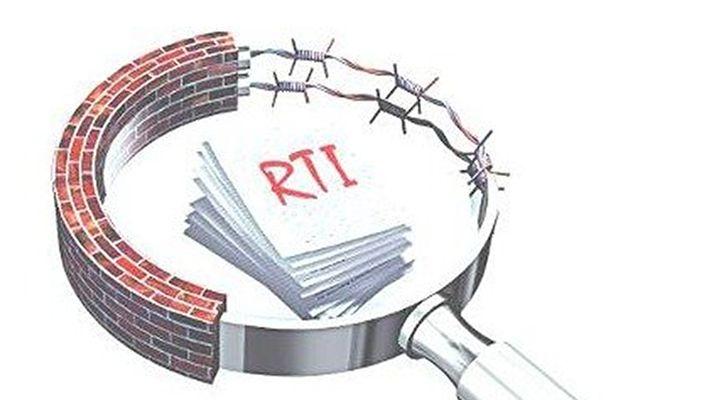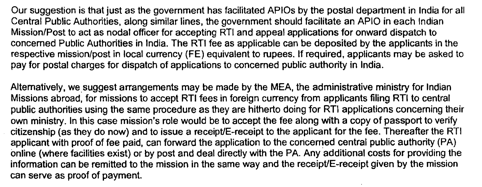Do NRIs Have a Right to Information?

On August 8, 2018, Dr. Jitendra Singh – in response to an unstarred question in the Lok Sabha– stated that Non-Resident Indians (NRIs) are ineligible to file applications under the Right to Information Act (RTI Act). Dr. Singh is the Minister of State in the Ministry of Personnel, Public Grievances and Pensions, and is also the Minister of State in the Prime Minister's Office (PMO). This response comes as a surprise because on August 1,the government had approved changes to the electoral laws allowing NRIs to cast their votes in elections from overseas.
Read more: Unbalancing the RTI Act in the Name of Privacy
The question was posed by Jugal Kishore, a Bhratiya Janata Party member of parliament (MP) from Jammu and Kashmir.
“Will the PRIME MINISTER be pleased to state:
(a) whether the applications under the Right To Information (RTI) Act can be filed online by the Indian Nationals and if so, the details of the process;
(b) whether Non-Resident Indians (NRIs) are also eligible to file online RTI application; and
(c) if so, the procedure laid down in this regard?
ANSWER
(a): Subject to the provisions of the Act, Citizens of India can file online application under the Right to Information Act, 2005. Currently, systems of 2200 Public Authorities have been aligned to receive, process and reply to Online RTIs from the applicants. Any applicant can visit the portal www.rtionline.gov.inand select the desired Ministry or Department under Central Government and file an Online RTI Application. A detailed user manual and Frequently Asked Questions (FAQs) are available on the website to help in filing the application. Applicant can pay the requisite fee through Online Payment in this portal and submit the RTI application.
(b): Only citizens of India have the right to seek information under the provisions of RTI Act, 2005. Non–Resident Indians are not eligible to file RTI applications.
(c): Does not arise, in view of reply given to part (b) above.”
This response highlights that the present government, on the one hand, recognises the overseas citizens' right to vote, but at the same time does not recognise their right to information. This is because NRIs are still Indian citizens, although not currently residing in the country. Commodore Lokesh K Batra (Retd) has highlighted this stating that “NRIs are the ones who still hold Indian passports but remain outside India for more than 182 days in a financial year. They remain citizens of India.” According to documents he provided to Newsclick, this is not the first time the question over the NRIs' right to information has cropped up.
Read more: Carrot and Stick Amendments to the RTI Act
The saga began soon after the Right to Information Act became a law in 2005. On December 8, 2006 a letter addressed to all the Heads of Missions and Posts abroad directed that they all appoint Public Information Officers (PIO) in accordance with the RTI Act. The letter also made it clear that the RTI applications could only be filed by Indian citizens.
After consultations with the Central Information Commission on April 4, 2007, a subsequent letter was sent to the missions and posts directing them to immediately appoint PIOs. This letter also stated that they could accept the RTI application fees – Rs 10 – in the local currency of the country where the mission or post was situated. The letter again reiterated that applications could only be filed by Indian citizens.
However, it soon became apparent that the PIOs appointed were unclear about their roles. They limited themselves to dealing solely with information matters concerning their specific missions or those regarding the Ministry of External Affairs (MEA). In April 2010, an appeal addressed to then Prime Minister Manmohan Singh, signed by 300 NRIs, was submitted to the then Chief Information Commissioner, Wajahat Habibullah, when he was in Washington DC through the Indian Ambassador to the United States, Meera Shankar.
The appeal suggested two alternatives to deal with RTI applications filed by NRIs concerning other ministries.

This appeal was forwarded to Debraj Pradhan, the Joint Secretary (JS) for RTI and the Central Public Information Officer of the MEA. Through an email on June 11, 2010, the JS responded by stating that the missions and posts should continue accepting RTI applications only concerning their missions or posts or the MEA. All applications concerning other missions and posts or other ministries could be disregarded. The email also stated that “RTI applications may continue to be accepted from Indian passport holders only which means NRIs, not repeat not from OCIs/PIOs.” It is clear that the government made a distinction in the status of NRIs vis a vis Overseas Citizens of India as well as Persons of Indian Origin in 2010.
However, the appeal did not stop at the MEA. It was transferred to the PMO, as it was treated as an RTI application. The appeal was then sent back to the MEA, as the PMO did not consider it to be an application.
A subsequent Office Memorandum (OM) on June 29, 2010 from the MEA laid out the current position of the RTI Act vis a vis NRIs. The OM reaffirmed that NRIs could file applications concerning only the MEA or the respective missions or posts. However, on the issue of online payments, the OM stated that the Department of Personnel and Training (DoPT) was working on the issue since the Act did not contain such provisions. The OM also mentioned that OCIs were not covered under the Act and its provisions only applied to NRIs.
Read more: Vacancies are Throttling Indian Citizens' Right to Information
In furtherance of the NRIs' right to information, a response to an unstarred question in the Rajya Sabha on November 11, 2009 stated that Indian missions and posts abroad were receiving and disposing of RTI applications in accordance with the Act. Thus, juxtaposed with the Dr. Singh's response this year, it appears that the Minister of State is either ignorant, or that the government has undertaken a significant shift in the policy.
Get the latest reports & analysis with people's perspective on Protests, movements & deep analytical videos, discussions of the current affairs in your Telegram app. Subscribe to NewsClick's Telegram channel & get Real-Time updates on stories, as they get published on our website.
























